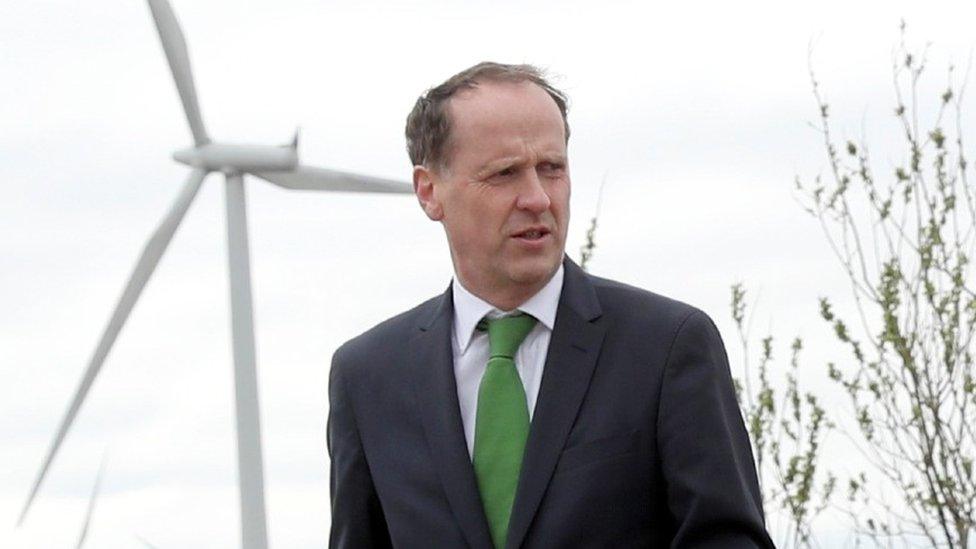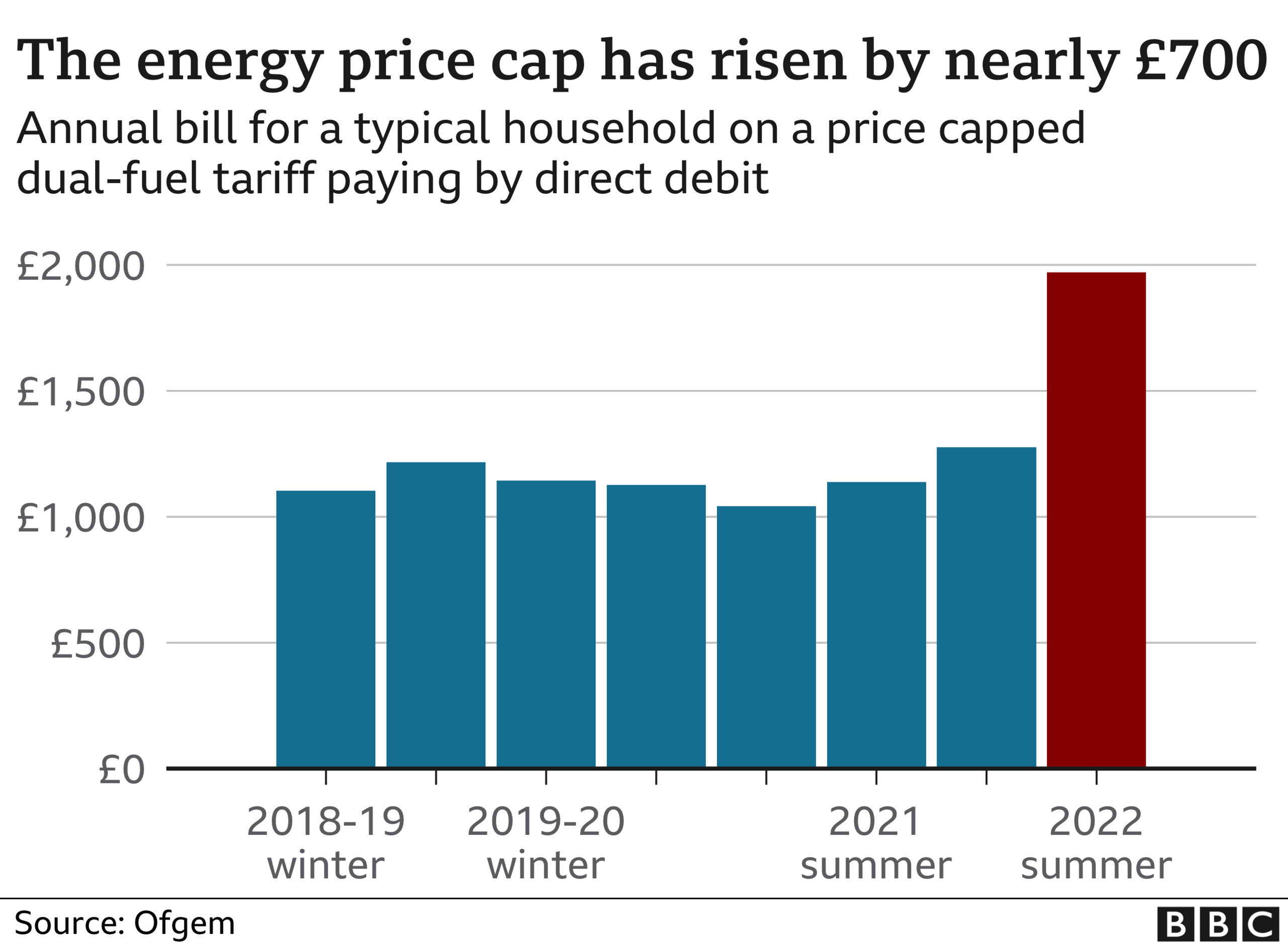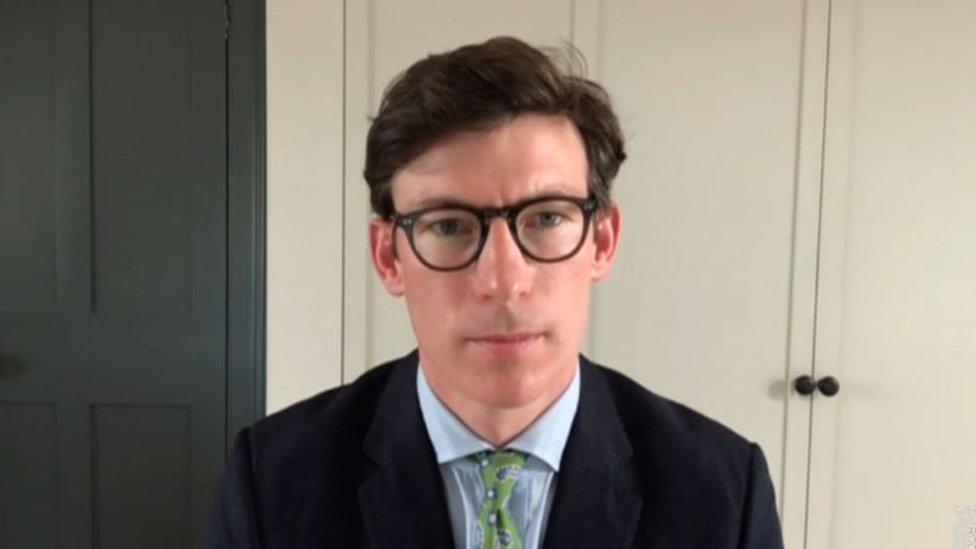Price rises will be horrific says Scottish Power boss
- Published

Scottish Power chief executive Keith Anderson said 8,000 had called a hotline with worries about their ability to pay
The chief executive of Scottish Power has said energy price rises later this year are going to be "horrific".
Keith Anderson told MPs at Westminster "so many people are really going to struggle".
He said the 54% increase in the energy price cap was already affecting customers and another steep rise is expected in October.
Mr Anderson said his company had 8,000 calls last week to a hotline for people worried about their ability to pay.
The Scottish Power chief appeared before the House of Commons Business, Energy and Industrial Strategy Committee, external alongside the bosses of E.ON, EDF and Centrica, which owns British Gas.
Mr Anderson said it was too soon for people to have run up large debts as a result of the April price rise but there was a "massive anxiety" about what they were going to do to cope with the soaring costs of gas and electricity.
He said a lot of people were facing the issue for the first time.
From 1 April, about 18 million households on standard tariffs saw an average increase in gas and electricity prices of £693 - from £1,277 to £1,971 per year.
Some 4.5 million prepayment customers could see an even higher increase.
Customers on fixed rates are likely to see a significant increase when their deal ends.

Mr Anderson said: "My biggest concern is when we get to October, particularly among the most vulnerable and the poorest.
"In summer consumption goes down. Come October that's going to get horrific, truly horrific."
Mr Anderson said the size and scale of the problem was beyond anything he could deal with or indeed his industry.
He called for a significant shift in government policy and approach.
The Scottish Power boss said the government should set up a "deficit fund" and wipe £1,000 off the bill of anyone who is deemed to be in fuel poverty and on pre-payment meters, which would be repaid over 10 years by all customers or the government.
Mr Anderson said such a policy was required for people in fuel poverty that "puts their bill back to where it used to be before the gas crisis".
He called that "stage one", which should be followed up with a social tariff that gives poorer households discounted energy. This should replace the current price cap, he said.
Mr Anderson added it is "perverse" that customers with prepayment meters - who are likely to be more vulnerable - pay more for their energy than those who pay by direct debit.
'Record energy prices'
Meanwhile, the Scottish Parliament's net zero, energy and transport committee heard that the high costs would continue for some time yet.
Dr Richard Lowes, senior associate at The Regulatory Assistance Project, said people "haven't started feeling the pinch yet", adding there is unlikely to be any "let up" before 2023.
Dr Matthew Hannon, from Strathclyde University's Hunter Centre for Entrepreneurship, warned that the energy price cap could rise again in October - with the average electricity and gas bill paid by direct debit forecast to go from "just shy of £2,000 to roughly £2,600".
He told the committee that people in the UK should "brace themselves for record energy prices".
Dr Hannon added: "There's probably two key factors which I expect will start to set the scene for whether we see bills starting to drop.
"That's the extent to how quickly we start to decouple our energy consumption from gas - that's both for power generation and also for heat - and I think associated with that is some of the difficulties with decoupling wholesale electricity prices from gas more broadly.
"So even if we aren't consuming much gas, the price of gas will dictate, to a large extent, the price of electricity.
"I think the other key factor here is the extent to which we can drive forward on energy efficiency."
Related topics
- Published19 April 2022
